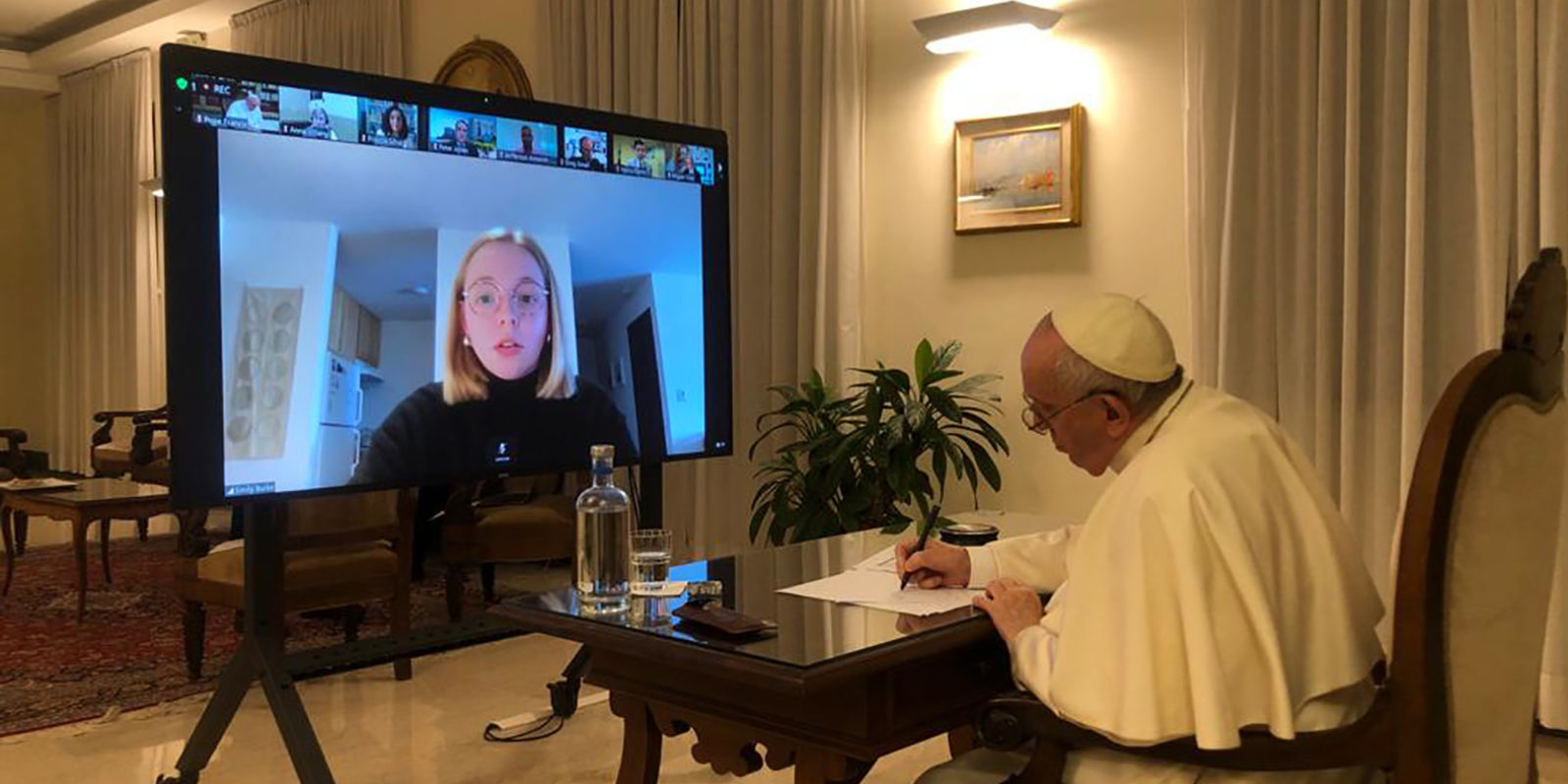Emily Burke never expected she would get the chance to speak directly to Pope Francis.
But there she was last month, face-to-face with the Pontiff—virtually, at least, over Zoom—suggesting ways in which the Catholic Church could begin to take a leadership role in addressing the ongoing problem of climate change.
For Burke, a graduate student in the Department of Sociology who hails from Milwaukee, it was a thrilling and almost surreal experience.
“I was just hyper-focused on what I was saying,” she says. “I had his attention for a good 90 seconds.”
The opportunity popped up unexpectedly. Burke earned her undergraduate degree at Creighton, a Catholic/Jesuit university in Nebraska, in sociology with a focus on environmental issues. As part of her undergraduate research documenting the Church’s relative silence on the issue of climate change, she waded through nearly 12,000 opinion columns written by Catholic bishops. Her resulting paper, published in 2021, gained national media coverage, including an appearance in the Washington Post.
“Less than 1% of those 12,000 columns even mentioned the words climate change, much less substantively talked about the issue or the Church’s social teachings on it,” says Burke. “It's an urgent issue that requires action. That project was putting data to the anecdotal, ‘Oh, my church does nothing on climate change.’”
Her work on the topic brought her to the attention of a group of organizers at the University of Chicago-Loyola—another Jesuit school—who were bringing students from North, South and Central America together to discuss global concerns and propose potential solutions as part of a Zoom session with Pope Francis. The group Burke was part of decided to tackle climate change as a cause of migration, which gave her an opportunity to approach the Church’s silence on the topic from a different angle.
Burke’s group suggested creating a series of centers that would train people – Catholic or non-Catholic – in the tactics and strategies of nonviolent direct action (demonstrations, protests, etc.), in the spirit of Martin Luther King, Jr. and the American civil rights movement. Burke was chosen to deliver the message to Pope Francis during the Zoom session, which took place on February 24.
“It feels like people power is really the only thing that's going to move anybody at this point, at least within the Church.” Says Burke. “But that kind of thing takes training. You can't just have a bunch of people show up and expect things to go well.”
The Pope seemed intrigued by the idea of training centers. During Burke’s part of the recorded Zoom presentation, he looked up from the notes he had been writing at his desk and made direct eye contact with her.
“The translation made it kind of difficult to understand what he was really saying, but I think he was very open-minded,” Burke says. “His answer was pretty diplomatic. But I think there were twinges of support. He understood where we were coming from and acknowledged our frustrations.”
Discussions about how to make the training centers a reality are continuing among the students, who hope to eventually find some institutional support and funding for the proposal. Burke, meanwhile, has found a comfortable home to continue her research at UW-Madison. She is currently working on her master’s degree, which will likely involve interviewing members of Madison’s Catholic parishes about issues related to climate change—how they’re reacting to it and whether they’re spurred to action or not.
“I think there are really interesting tensions between listening to what my bishop says and is telling me to do, versus what I know to be the Catholic faith,” explains Burke. “I think it'll be really interesting to see how people are navigating, or dealing with, or perhaps even blocking out, these tensions.”
